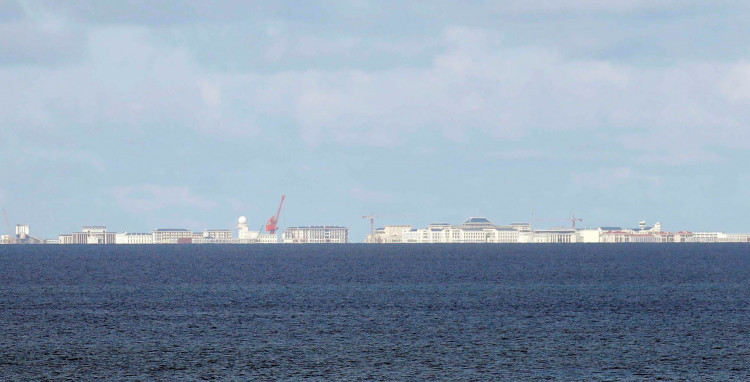A UN Security Council meeting Monday has led to U.S. Secretary of State Antony Blinken calling out China for its aggressive claims in the South China Sea. He warned that a dispute would have a dire impact on global commerce and security.
"Conflict in the South China Sea, or in any ocean, would have serious global consequences for security, and for commerce," Blinken said. "When a state faces no consequences for ignoring these rules, it fuels greater impunity and instability everywhere."
The South China Sea has become one of several tensions in China's tumultuous relationship with the U.S. America denounced what it calls China's unlawful territorial claims in the resource-rich waters.
China claims large portions of the South China Sea, which overlap with the exclusive economic zones of the Philippines, Vietnam, Indonesia, Malaysia, and Brunei.
Trillions of dollars in trade pass through the waterway each year, which also has rich fishing grounds and gas resources.
Dai Bing, China's deputy UN Ambassador, accused the U.S. of inventing conflict out of thin air by arbitrarily dispatching advanced military vessels and aircraft into the South China Sea as threats and publicly attempting to push a wedge between regional countries.
Blinken said that it was the obligation of all countries, not only those with claims to the South China Sea's islands and waterways, to protect the rules they had all agreed to follow in order to peacefully resolve maritime issues.
According to the United States Indo-Pacific Command, the U.S. would continue to operate in the South China Sea to secure the prosperity of all nations in the region.
During a presentation at the Aspen Security Forum in Colorado last week, Admiral John Aquilino, chief of the U.S. Indo-Pacific Command, stated that many concerns in the region revolved around China's activities, which "quite often don't match up with the words that come out of Beijing."
He added that China's claims in the South China Sea threaten the well-being and development of all nations in the region, noting that the Chinese forcibly renamed 80 natural features in the area, each with an inherent claim.
Aquilino assured that the U.S. is working with allies and partners in the region to alleviate tensions.






